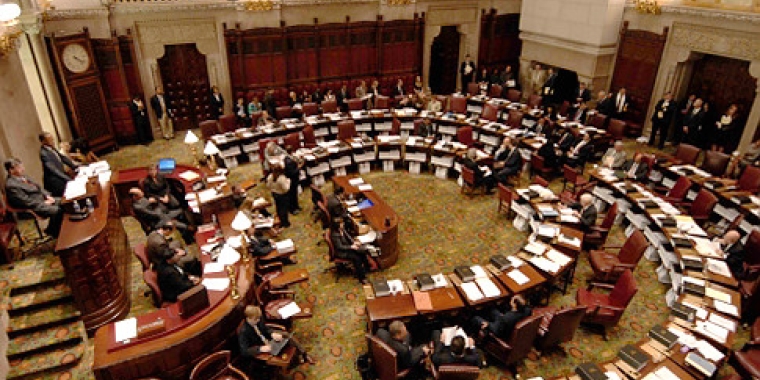
Senate Passes Bill to Create New Crime of Exploiting the Elderly and Vulnerable Adults
Patrick M. Gallivan
June 18, 2012

Measure Helps Deter Stealing From Senior Citizens or People With Physical or Mental Disabilities
The New York State Senate today responded to the need for increased protection against financial exploitation of elderly and vulnerable adults by passing legislation to make such actions a crime. The legislation (S6712), sponsored by Senator Patrick M. Gallivan (R-C-I, Elma), gives district attorneys and police the tools they need to prosecute instances of financial exploitation of vulnerable elderly or people with physical or mental disabilities.
“Scams targeting the elderly and disabled have become increasingly more sophisticated and widespread in recent years,” said Senator Gallivan. “This legislation will give district attorneys and local law enforcement the prosecutorial powers needed to protect some of New York State’s most vulnerable citizens. Twenty-nine other states have enacted statutes specifically designed to protect senior citizens against financial abuse and I applaud my Senate colleagues for taking the first step towards ensuring that New York does the same.”
Financial exploitation of the elderly or those who have a physical or mental disability that prevents them from caring for themselves is a
pervasive and often unseen form of abuse. The National Center on Elder Abuse defines elder financial exploitation as “the illegal or improper use of an elder's funds, property or assets.” Such instances of exploitation can include credit card fraud, real estate scams, identity theft and
burglary, which are also notoriously difficult to combat. Even when reported to local authorities, antiquated criminal statutes make it difficult to prosecute these offenses.
The bill establishes exploitation of a vulnerable elderly, incompetent, or disabled person as a form of larceny. It also requires adult protective services officials to report all instances of suspected exploitation to their district attorney's office.
The bill will be sent to the Assembly.
Share this Article or Press Release
Newsroom
Go to NewsroomVotes in the NYS Senate for June 14, 2019
June 18, 2019

Votes in the NYS Senate for June 13, 2019
June 17, 2019


